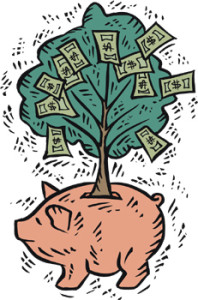 While having money in the bank is always a prescription for feeling well, having a bank account is a precursor to getting health insurance under the Affordable Care Act. That fact could prevent millions of people who are eligible for health insurance premium subsidies under health reform from enrolling in a health plan.
While having money in the bank is always a prescription for feeling well, having a bank account is a precursor to getting health insurance under the Affordable Care Act. That fact could prevent millions of people who are eligible for health insurance premium subsidies under health reform from enrolling in a health plan.
The issue of banking the un-banked in health is a little talked-about detail that, if overlooked, will scuttle the best-laid plans for health reform. That’s because if people enroll in health insurance, their monthly premiums will need to be debited from a bank account. So, without a bank account, the newly-enrolled in a health plan won’t be able to pay ongoing premiums.
Think about it this way: workers who receive their health insurance through their employer have their monthly plan premiums deducted from their paychecks. In this way, the employer’s accounts payables function is playing the role of medical banker.
For people who obtain health insurance through a health insurance exchange under health reform, premium payments are expected to be paid through personal bank accounts.
Thus, 1 in 4 Americans who is eligible for a premium subsidy under the Affordable Care Act (ACA) could be unable to access health insurance because they are “un-banked,” without a checking account, according to a Jackson Hewitt survey published in May 2013.
In Uninsured + Unbanked = Unenrolled, Jackson Hewitt, the tax services company, details the conundrum: insurance companies can require customers to pay premiums automatically through checking accounts. This lowers administrative costs – which analysts agree is a good thing to do. But the unintended consequence would be that for the 8 million+ uninsured Americans eligible for tax credits under the ACA, insurance remains elusive.
Most of the un-banked consumers live in 11 of the 12 states where Health Insurance Marketplaces (Exchanges, HIXs) will be operated by the Federal government. In Illinois, Jackson Hewitt found that over 1 in 3 uninsured residents probably doesn’t have a checking account. The two most populous HIX’s, California and New York, have the second and third lowest un-banked rates in the U.S. among uninsured people living with incomes 100% to 400% of the Federal Poverty Level.
African-Americans and Hispanic Americans are especially impacted by this situation: they are 43% more likely to be un-banked than white Americans. Statistically, 1 in 3 African-Americans and Hispanic Americans is un-banked. This equates to 5 million of the 8.5 million total people uninsured and un-banked in America eligible for ACA premium credits.
Health Populi’s Hot Points: There are some 50 million people in the U.S. without bank accounts according to the RAND Corporation‘s 2012 findings on the un-banked in America. But just because folks don’t have bank accounts doesn’t mean they don’t transact personal finance using other tools. Jackson Hewitt calls out prepaid debit cards as one way un-banked consumers make electronic payments, a growing M.O. for people who don’t have traditional checking accounts. The Federal government issues such cards to beneficiaries in Veterans Administration and Social Security programs, and State recipients of benefits also use these cards.
But Federal rules, Jackson Hewitt points out, allow insurance companies to reject debit card payments: the specific legal issue is in the ACA at § 1412(c), as amended; 77 Fed. Reg. 18310, 18471 (March 27, 2012) (to be codified at 45 CFR § 156.270); id. at 18463 (March 27, 2012) (to be codified at 45 CFR § 155.430).
There is language in a letter from the Department of Health and Human Services to insurers from April 5, 2013 stating that insurers must accept payments in ways that are “non-discriminatory,” but since the publication of that letter, Jackson Hewitt found no further clarification on using debit card payments.
The Federal government has the opportunity to fix this oversight, allowing for other types of consumer payment mechanisms beyond checking accounts to include, at a minimum, debit cards.
Real Simple published a helpful article on the merits of checking accounts versus prepaid cards here. They argue that consumers can find “free” checking accounts without fees, discoverable at sites like Bankrate.com. But in 2013, these are few and far between as banks nickel-and-dime consumers on fees.
Still, the un-banked need better financial options, as discussed in the Center for American Progress discussion on the unbanked. The use prepaid cards has reached 27% of the un-banked who used to have traditional bank accounts. Prepaid cards aren’t a panacea but are the chosen financial vehicle for millions of people in America who, for various reasons — financial, trust, and logistical — choose to use them. They need stronger consumer protections and industry standards.




 Thanks to Feedspot for naming this blog, Health Populi, as a
Thanks to Feedspot for naming this blog, Health Populi, as a